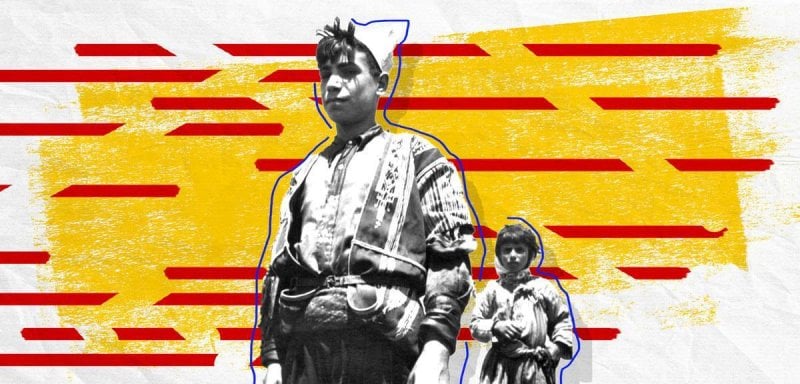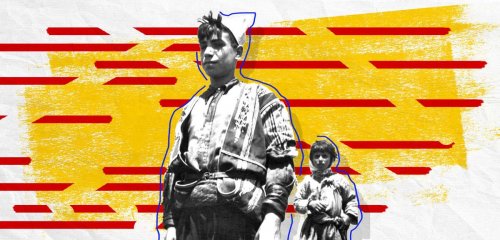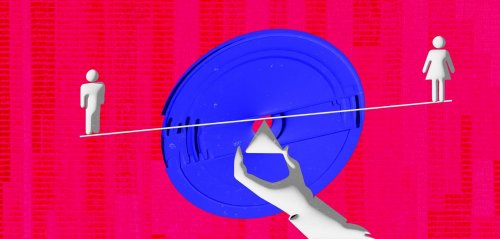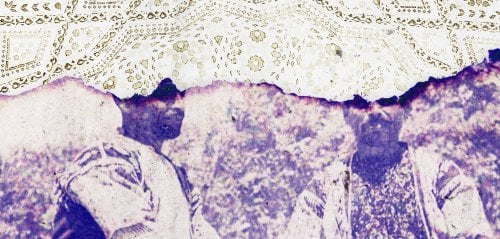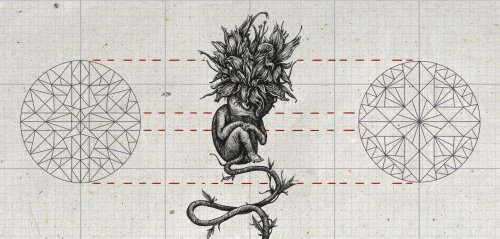Nothing exposes illusions more than wars and crises. War is a moment of pure truth, devoid of lies, flattery, and favoritism. Those who genuinely love you would sacrifice their lives for you, defend you, and refrain from harming you. Those who hate you would devour you and throw your bones aside, perhaps killing you simply for the sake of killing and leaving your flesh to the wolves. Therefore, the stages of wars and conflicts are crucial for studying a person's behavior, identity, beliefs, and their influence on his past, present, and future, as well as his cultural and geographical environment, whether it be the desert he inhabits or the scent of the sea he breathes. War exposes humans to themselves and to others.
The Alawite component within the Syrian context derives its importance from being unknown or misunderstood. They do not like talking about themselves or perhaps cannot do so, either out of fear of being accused of apostasy or fear of authority. "His crime is twofold," as they say. This has opened the floodgates to rumors and accusations, leaving the image of the Alawite sect trapped between those who accuse them of heresy and incest, and the few Alawite religious leaders who speak to the media with stiff words, often revealing a great deal of piety and conservativeness in the era of social media storms.
Alawites between the coast and the center
According to Ali, 28, a gastroenterologist from the coastal province of Tartus in Syria, who commutes between his home in one of a village in the Tartus countryside and his work in the interior of Syria at a hospital in Homs, "There is a stark difference in the mentality of Alawites on the coast (Tartus and Latakia) compared to Alawites in the interior, like Homs. Alawites in Homs tend to be more intolerant and closed-minded, and I observed this in their attitudes and behaviors while examining and treating them at the hospital, as well as coming into contact with them on internal transportation buses, bread lines, and other occasions. Some of them were my neighbors in the house I rented for two years in the Zahraa neighborhood in Homs city."
On one occasion, a man came with his wife, who was nearly 70 years old, and adamantly refused to allow his wife to expose her abdomen to the doctor, saying, "I brought my family here so that a female doctor like her can examine her"
He recounts to Raseef22 that in many cases, female patients often refuse medical examinations that include leg or even abdominal examinations, "even if they are unveiled." They insistently request that he diagnose their condition and prescribe appropriate medication solely through conversation. In many instances, things had reached the point of shouting and threats.
On one occasion, a man came with his wife, who was nearly 70 years old, and adamantly refused to allow his wife to expose her abdomen to the doctor, saying, "I brought my family here so that a female doctor like her can examine her." Ali says, "When I was a resident physician in general medicine at Tishreen University Hospital in Latakia, such cases were much less frequent. I used to see people there, both men and women, dressed in whatever summer clothes they liked. Women did not face as much harassment, or at least they were not scrutinized, and others did not whisper or exchange glances when it came to their appearances or actions. Alawites on the coast were greatly influenced by the atmosphere of openness and relative liberation experienced in cities and even some coastal villages. Those in the interior were affected by a more closed-minded atmosphere."
Ideology between the sea and the desert
Ansam, a 27-year-old psychiatrist at a hospital in Damascus, attributes this reality – in part – to the positive impact of the sea on people's mental state. She believes that the beach and the oceans have a positive effect on depression, as the sound of water and waves crashing against rocks helps alleviate negative emotions. Additionally, the sea is filled with positive ions that have a calming effect on the brain, which can help reduce stress and anxiety. Many studies also indicate that the color blue enhances creativity, and that being near the sea helps people feel grateful.
According to Ansam, "This enables individuals to achieve a mental, intellectual, and psychological state that is as close as possible to a balanced one, while providing the necessary tranquility to approach their lives and thoughts rationally, free from religious, sectarian, and doctrinal biases that thrive on the basis of existential anxiety."
She adds, "The sea also serves as a means of familiarizing men, from childhood, with the presence of women in their utmost femininity. They become accustomed to seeing women in swimsuits, accepting their freedom in the way they dress and, subsequently, in their life affairs. This way, they don't become excessively aroused when they encounter women on the street, based on the well-known psychological principle that 'exposure eliminates response or, at the very least, reduces it'. This is in contrast to religious institutions that separate genders in schools and impose veiling and niqab on females, which further suppresses men's desires and causes them to vent their repression in abnormal ways such as harassment and rape."
The doctor recounts that she came across veiled girls in Latakia who are more liberated and open-minded compared to Alawite and Christian girls living in the center. It's "as if the sea and the desert have an impact on their ideologies and beliefs, or rather on their level of attachment to them."
Alawites: A generational struggle of another kind
Hiyam (pseudonym), a 32-year-old graduate of the Faculty of Political Science at the University of Damascus, works in a commercial store in the city of Latakia where she lives alone. She says, "My uncles vary in terms of religiousness. Some of them adhere to a superficial form of religiosity without any deep involvement or participation in communal prayers and religious events. Others participate without immersing themselves in the extensive readings they call 'religious jurisprudence'. Whereas some read religious books, engage in discussions, and strive to apply religious principles to their wives, children, and every aspect of their daily lives, like my uncle Kamal. These examples or degrees of religiousness reflect the composition of the Alawite community."
"My uncles vary in terms of religiousness. Some adhere to a superficial form of religiosity without deep involvement, while others apply religion to every aspect of their lives. These degrees of religiousness reflect the composition of the Alawite community"
Hiyam says, "The changes were not too apparent in my younger uncle, Kamal, who is 56 years old and works as a mere employee in a governmental department, until after the martyrdom of his nephew, followed by the martyrdom of his other nephew in battles in Aleppo and Daraa at the hands of terrorist organizations, or so they told us. It's true that he disavowed the President after that, but he became more immersed in religious matters. He started growing a beard and interfering in his neighbors' affairs regarding religious customs. He even attempted to interfere in my personal affairs as a girl who has surpassed the age of marriage, according to prevailing customs, and is living alone in the city away from her family. However, I was stern with him and made sure he would never think again of speaking to me or interfering in my life."
On one of the Fridays that Hiyam used to visit her grandfather and grandmother in their modest house in the village, they sat in the courtyard under the shade of a large apricot tree, which blessed them with its shade and fruits. "My uncle Kamal came and sat with us. And from one conversation to another, as usual, he steered the discussion towards religious matters and said that women should confine themselves to their homes," Hiyam says. "This phrase has been echoing in my ears since that day. He also said that a woman's duties as a female should be limited to raising her children and taking care of her husband. When I asked him why, he replied with: 'Because she is lacking in intellect and religion'."
Hiyam was provoked by her uncle Kamal's statement, so she answered him, "I shouldn't even respond to you because your words are too silly and trivial to respond to, but give me one reason why women are lesser in intellect and religion than men." He replied, "Because of the menstrual cycle, where she cannot maintain her purity in order to perform prayer like men." She says, "I answered him that this same body fluid that you call impure and denigrate women with, you swam in it for nine months, drank from it, and breathed it. He became flustered and tried to justify what he said with information he may have heard in the religious gatherings he attends, saying, 'Your statement is not true, there is a sac that encloses the fetus to separate it from this fluid, and there is divine wisdom behind all this!"
The Alawite woman "goes deaf" if she hears
According to Ratib Sh'abo, a Syrian Alawite writer and former political prisoner who spent 16 years in Syrian prisons and holds a master's degree in medicine, and has several published books and writes in Arab newspapers, "Women in the Alawite sect are seen as unable to keep secrets, and it is circulated among the Alawite community that if a woman passes by a prayer room on holidays, a room where women are not allowed to enter, and hears words coming from inside, she will go deaf. On the other hand, there are many Alawite fathers who give their daughters an equal share of inheritance as their sons, and I have seen this many times. Also, polygamy does not exist among the Alawites. It is very rare, as well as divorce."
He recounts that in the village where he lived his life and knows its inhabitants, there are no cases of polygamy or divorce. Therefore, he believes that the situation of women in the Alawite sect is better than in the Sunni sect. And this freedom enjoyed by women in the Alawite environment stems from Christian residues.
The story of Hiyam and her uncle Kamal highlights the generation gaps in Alawite society, where the elderly respond to the pressures of life, wars, and disasters they have faced by turning to religion and reverting back in an attempt to rectify the conditions that have been corrupted due to "people drifting away from religion." On the other hand, young people have experience the same shocks and trauma at an early age and have not lost the ability to change their ideas and principles. The Syrian catastrophe forced many young Alawites to reconsider their beliefs and ideas, taking advantage of the relative freedom in the Alawite environment compared to other stricter and more closed environments.
This is what the late Syrian researcher and thinker Nabil Fayyad attributed to "the weakness of the Alawite religious leadership – so to speak – as it is far from controlling people's minds, so you find a predominant inclination towards freedom among the Alawites as a percentage compared to many other sects."
The sheikh, as a literary authority
Salman, a 28-year-old telecommunications engineer who recently graduated and now works as an accountant in a store in Tartus, returns home every day at 6 pm (or depending on traffic) to rest his head on his pillow where numbers and bills would occupy his mind.
He tells Raseef22, "At the start of my adolescence, I used to attend religious gatherings that were more like social gatherings where conversations revolved around the conditions of the village and its people, and religion or jurisprudence did not completely dominate those discussions. On the first day of Ramadan, I entered a gathering that had a decent number of young men, aged 13 to 30, led by a sheikh in his sixties. The majority of attendees were under twenty years old, as most young men over 20 were either serving in mandatory military service or were already buried under the ground."
"There wasn't a single Alawite family that didn't have a university student in it, as they realized that their only salvation was through education. When the signs of salvation appeared, the process of their militarization began"
Salman narrates that a man in his mid-thirties spoke to the young boys after obtaining permission from the sheikh, explaining to them the blessings they enjoy these days. They can pray and fast openly without being bothered by anyone, unlike their fathers and grandfathers who were subjected to harassment, ridicule, and bullying by their neighbors, relatives, and the Alawite social environment in the neighboring villages and even their own village now, to that point that they used to fast and pray in secret.
In this context, Sh'abo says, "The sheikh in the Alawite sect does not have the kind of authority that implies power or control. It can be said that he only has literary authority, meaning that if the sheikh says someone is being unreasonable or a disbeliever, a person among the attendees may take action against them a few days later, and may also do nothing. In other words, he is not obliged to follow the sheikh's words and has the freedom not to implement them."
Alawites and the factor of time
Sh'abo believes that there has been a change in the Alawite environment as a result of political pressure, as they were encouraged by other parties (such as the Shiites) to build mosques and "come out of the cocoon they were living in and integrate with the world." So they started building mosques, initially as a formality, but later people started going to them for prayers. The percentage of worshippers and individuals who fast increased, especially among the youth and teenagers, when fasting used to be limited to the elderly in the past.
Regarding the pressures and the political, social, cultural, and educational transformations that the Alawite community has undergone, Dr. Wafa Sultan, a psychiatrist and researcher who was born into an Alawite family in Baniyas, says in chapter 61 of her book "Your Guide to a Sacred Life": "In the 1980s, gangs affiliated with the Assad regime invaded Alawite villages and used loudspeakers to encourage young people to join the Defense Brigades in exchange for a salary of 3,000 Syrian pounds (the highest salary at that time for a university professor was 2,500), three meals a day, and no requirement for any educational degree. In that particular period, the Alawites had the highest percentage of students in Syrian universities compared to the percentage of their sect in the general population."
"When you militarize an entire sect, you dumb it down, especially when you convince it that militarization is beating, repressing, suppressing, intimidating, retaliating, and protecting interests, with no regard to physical, mental or moral qualifications"
Sultan continues, "At that time, a friend from the Khayr family told me that in the University of Damascus alone, there were 17 students, each one named 'Ali al-Khayr'! There wasn't a single Alawite family that didn't have a university student in it, as they realized that their only salvation was through education. And at the peak of their academic achievement, when the signs of salvation appeared, the process of militarization began. With all due respect to all the soldiers on the ground, when an entire sect is militarized, it's dumbed down and manipulated, especially when you convince it that militarization is beating, suppression, control, oppression, intimidating, retaliating, impoverishment, and protection of interests, with no regard for physical, intellectual, and moral qualifications."
In conclusion, Alawite environments are highly diverse due to the absence of a single reference, leader or any clear, strict rules for the Alawite religion. Orientations and trends vary from one village to another and even from one house to another. Even among brothers, you find one brother is very uptight and the other open-minded, perhaps even an atheist or irreligious. Therefore, it is impossible in any way to lump the Alawite community into one category or generalize any particular characteristic to them.
Raseef22 is a not for profit entity. Our focus is on quality journalism. Every contribution to the NasRaseef membership goes directly towards journalism production. We stand independent, not accepting corporate sponsorships, sponsored content or political funding.
Support our mission to keep Raseef22 available to all readers by clicking here!
Interested in writing with us? Check our pitch process here!
